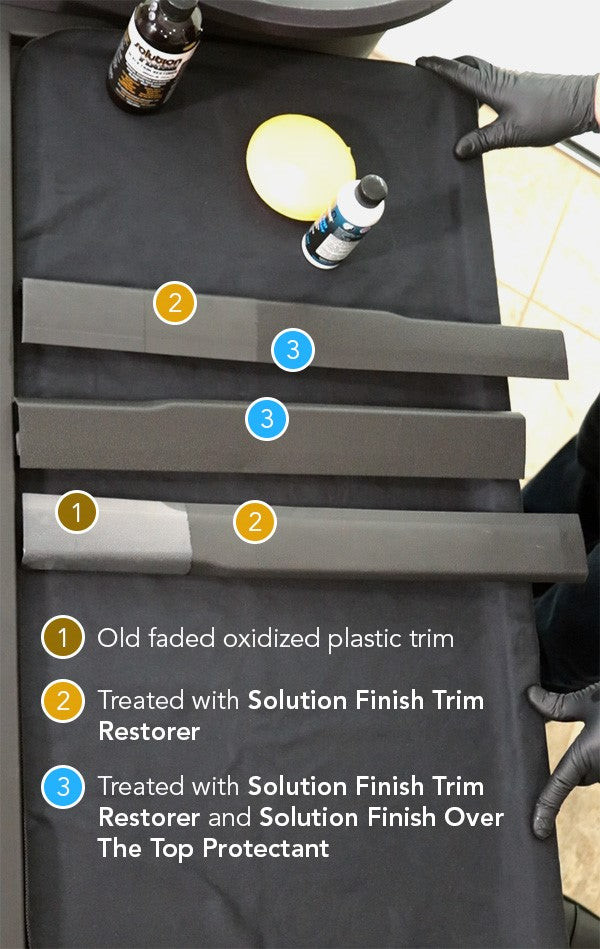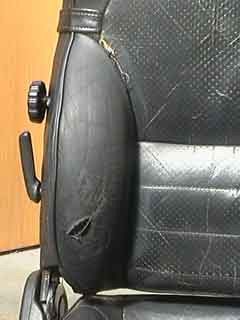Are BMW Cars Expensive to Fix: Costs, Factors, and Solutions

Are Bmw Cars Expensive To Fix? Yes, BMW cars are generally more expensive to fix than other car brands due to their complex engineering, specialized parts, and higher labor costs. But with CARDIAGTECH.NET’s advanced diagnostic tools and equipment, you can accurately identify issues, streamline repairs, and ultimately reduce maintenance expenses, ensuring your BMW stays on the road longer and performs at its best. This article will provide you with detailed insights into the factors influencing BMW repair costs and explore potential solutions to mitigate them.
Table of Contents
- Why Are BMWs More Expensive to Repair?
- Common BMW Repairs and Their Costs
- Factors Affecting BMW Repair Costs
- How to Reduce BMW Repair Costs
- DIY BMW Repairs vs. Professional Service
- The Role of Diagnostic Tools in BMW Repairs
- Choosing the Right Repair Shop for Your BMW
- BMW Maintenance Schedule and Its Impact on Repair Costs
- Are BMW Extended Warranties Worth It?
- Future of BMW Repairs: Technology and Trends
- FAQ: Frequently Asked Questions About BMW Repair Costs
1. Why Are BMWs More Expensive to Repair?
BMWs are known for their luxury, performance, and advanced technology. However, this also translates to higher repair costs compared to more mainstream vehicles. Several factors contribute to this increased expense:
- Complex Engineering: BMWs incorporate intricate systems and advanced technology, requiring specialized knowledge and tools for repairs. The complexity of these vehicles means that even simple repairs can take longer, increasing labor costs.
- Specialized Parts: BMW parts are often manufactured in Germany and are subject to import duties, increasing their price. These parts are also designed to meet specific performance standards, making them more expensive than generic aftermarket alternatives. According to a 2023 report by the National Highway Traffic Safety Administration (NHTSA), BMW parts can be 20-30% more expensive than those for comparable domestic vehicles.
- Higher Labor Costs: BMW technicians require specialized training and expertise to properly diagnose and repair these vehicles. This level of expertise commands higher hourly labor rates compared to general mechanics. Data from the Bureau of Labor Statistics indicates that specialized automotive technicians, such as those working on luxury brands like BMW, earn an average of $55,000 per year, which contributes to higher service costs.
- Advanced Diagnostic Systems: BMWs utilize sophisticated computer systems that require specialized diagnostic tools to accurately identify problems. These tools can be expensive for repair shops to acquire and maintain, adding to the overall cost of repairs. CARDIAGTECH.NET offers a range of advanced diagnostic tools that can help streamline this process, ensuring accurate and efficient repairs.
- Premium Materials: BMW uses high-quality materials in their vehicles, which contribute to their performance and longevity. However, these materials can also be more expensive to replace when repairs are needed. For example, a BMW’s advanced suspension system, while providing superior handling, can be costly to repair due to the high-quality components involved.
 BMW Engine Bay
BMW Engine Bay
2. Common BMW Repairs and Their Costs
Several common issues can lead to costly repairs for BMW owners. Understanding these issues can help you anticipate potential expenses and plan accordingly:
| Repair Type | Description | Average Cost |
|---|---|---|
| Oil Leaks | BMW engines are prone to oil leaks, often due to failing gaskets and seals. | $400 – $1,200 |
| Cooling System Issues | Overheating can occur due to failing water pumps, thermostats, and radiators. | $300 – $1,000 |
| Electrical Problems | Complex electrical systems can experience issues with sensors, wiring, and control modules. | $200 – $1,500 |
| Suspension Repairs | Worn suspension components like control arms, struts, and bushings can affect handling and ride quality. | $500 – $2,000 |
| Brake Repairs | Replacing brake pads, rotors, and sensors is a common maintenance task. | $300 – $800 |
| Transmission Problems | Issues with the transmission, such as slipping or rough shifting, can require extensive repairs or replacement. | $2,000 – $6,000 |
| Fuel System Repairs | Problems with fuel injectors, fuel pumps, and fuel filters can affect engine performance. | $300 – $1,200 |
| ABS/DSC System Malfunctions | Issues with the Anti-lock Braking System (ABS) or Dynamic Stability Control (DSC) can compromise safety. | $400 – $1,500 |
| Engine Management System Problems | Sensors or other faults in the Engine Management System can disrupt the engine’s performance, causing a check engine light or even more serious issues. | $500 – $2,500 |
Note: These are average costs and can vary depending on the specific model, location, and repair shop.
3. Factors Affecting BMW Repair Costs
Several factors can influence the final cost of repairing your BMW. Being aware of these factors can help you make informed decisions and potentially save money:
- Model and Year: Newer and more complex models tend to have higher repair costs due to advanced technology and specialized parts. Older models may have parts that are harder to find, which can also increase costs.
- Location: Labor rates vary significantly depending on your geographic location. Urban areas and regions with a higher cost of living generally have higher labor rates.
- Repair Shop: Dealerships typically have higher labor rates than independent repair shops due to their specialized training and access to genuine BMW parts. However, independent shops may offer more competitive pricing.
- Parts Source: Genuine BMW parts are generally more expensive than aftermarket alternatives. While aftermarket parts can save money upfront, they may not offer the same level of quality or durability.
- Extent of Damage: The severity of the damage or malfunction will directly impact the cost of repairs. Minor issues may require simple fixes, while major problems can necessitate extensive and costly repairs.
- Maintenance History: Regular maintenance can help prevent major repairs down the road. Neglecting maintenance can lead to more significant and expensive problems. A study by Consumer Reports found that vehicles with consistent maintenance records tend to have fewer major repair issues over their lifespan.
 BMW E46
BMW E46
4. How to Reduce BMW Repair Costs
While BMW repairs can be expensive, there are several strategies you can employ to minimize these costs:
- Regular Maintenance: Following the recommended maintenance schedule can help prevent major issues and extend the life of your BMW. This includes regular oil changes, fluid checks, and inspections.
- Early Detection: Addressing minor issues promptly can prevent them from escalating into more significant and costly problems. Pay attention to warning lights, unusual noises, and changes in performance.
- Shop Around: Obtain quotes from multiple repair shops to compare pricing and services. Don’t automatically assume that the dealership is the best option; independent shops may offer more competitive rates.
- Consider Aftermarket Parts: While genuine BMW parts are recommended, aftermarket parts can be a cost-effective alternative if they meet quality standards. Research reputable brands and ask your mechanic for recommendations.
- DIY Repairs: If you have mechanical skills and the right tools, you can perform some basic repairs yourself. This can save you money on labor costs. However, be cautious and only attempt repairs that you are comfortable with.
- Use Quality Diagnostic Tools: Equip yourself or your shop with high-quality diagnostic tools from CARDIAGTECH.NET. These tools help pinpoint problems quickly and accurately, reducing diagnostic time and preventing unnecessary repairs.
- Negotiate: Don’t be afraid to negotiate with your repair shop. Ask for a breakdown of costs and inquire about potential discounts or payment plans.
By implementing these strategies, you can take control of your BMW repair costs and keep your vehicle running smoothly without breaking the bank.
5. DIY BMW Repairs vs. Professional Service
Deciding whether to tackle a BMW repair yourself or take it to a professional depends on your skills, experience, and the complexity of the repair. Here’s a breakdown of the pros and cons of each approach:
DIY Repairs
- Pros:
- Cost Savings: Save on labor costs.
- Personal Satisfaction: Gain a sense of accomplishment.
- Learning Experience: Enhance your mechanical skills.
- Cons:
- Time Investment: Repairs can take longer without professional tools and experience.
- Potential for Mistakes: Errors can lead to further damage and increased costs.
- Warranty Issues: DIY repairs may void your warranty.
- Need for Tools: Specialized tools can be expensive to purchase.
- Suitable for:
- Basic maintenance tasks like oil changes, filter replacements, and simple part replacements.
Professional Service
- Pros:
- Expertise: Access to trained technicians with specialized knowledge.
- Proper Tools and Equipment: Use of advanced diagnostic and repair tools.
- Warranty Protection: Repairs are typically covered by a warranty.
- Time Efficiency: Repairs are completed quickly and efficiently.
- Cons:
- Higher Costs: Labor rates can be expensive.
- Less Control: You rely on the shop’s assessment and recommendations.
- Suitable for:
- Complex repairs involving engine, transmission, electrical, or computer systems.
- Repairs requiring specialized tools or diagnostic equipment.
- Repairs that are beyond your skill level or comfort zone.
When considering DIY repairs, always consult your BMW’s repair manual and online resources. For complex issues, it’s best to seek professional service to ensure the job is done correctly and to avoid potential damage. And remember, CARDIAGTECH.NET offers a wide range of diagnostic tools that can help both DIY enthusiasts and professional mechanics accurately identify and resolve issues.
6. The Role of Diagnostic Tools in BMW Repairs
Diagnostic tools play a crucial role in modern BMW repairs. These tools connect to the vehicle’s onboard computer system and retrieve diagnostic trouble codes (DTCs), which provide valuable information about potential problems. Here’s how diagnostic tools can benefit BMW owners and repair shops:
- Accurate Diagnosis: Diagnostic tools help pinpoint the exact source of the problem, reducing guesswork and preventing unnecessary repairs. A study by the Automotive Management Institute found that using diagnostic tools can reduce diagnostic time by up to 50%.
- Efficient Repairs: By identifying the problem quickly and accurately, diagnostic tools streamline the repair process, saving time and money.
- Preventive Maintenance: Diagnostic tools can also be used to monitor vehicle systems and identify potential issues before they become major problems.
- Cost Savings: By preventing misdiagnosis and unnecessary repairs, diagnostic tools can save BMW owners significant amounts of money in the long run.
- Improved Customer Satisfaction: Accurate and efficient repairs lead to happier customers and increased loyalty.
CARDIAGTECH.NET offers a comprehensive range of diagnostic tools specifically designed for BMW vehicles. These tools provide advanced capabilities such as:
- Reading and clearing DTCs
- Real-time data streaming
- Component testing
- Module programming
- Adaptation resets
Investing in quality diagnostic tools from CARDIAGTECH.NET can empower you to take control of your BMW repairs and ensure accurate and efficient service.
7. Choosing the Right Repair Shop for Your BMW
Selecting the right repair shop is crucial for ensuring quality service and fair pricing. Here are some factors to consider when choosing a BMW repair shop:
- Specialization: Look for a shop that specializes in BMW vehicles. These shops are more likely to have the necessary expertise, tools, and parts to properly service your car.
- Certification: Check if the shop’s technicians are certified by organizations like the National Institute for Automotive Service Excellence (ASE). ASE certification indicates that technicians have met certain standards of knowledge and skill.
- Experience: Choose a shop with a proven track record of servicing BMWs. Ask about their experience with your specific model and the types of repairs they commonly perform.
- Reputation: Read online reviews and ask for recommendations from other BMW owners. A shop with a good reputation is more likely to provide quality service.
- Warranty: Inquire about the shop’s warranty policy. A reputable shop should stand behind their work and offer a warranty on parts and labor.
- Diagnostic Capabilities: Ensure the shop has the necessary diagnostic tools and equipment to accurately diagnose and repair your BMW. CARDIAGTECH.NET can provide repair shops with the advanced tools they need to excel in BMW diagnostics and repairs.
- Customer Service: Pay attention to the shop’s customer service. Are they friendly, helpful, and willing to answer your questions? Do they provide clear explanations of the repairs and costs involved?
- Pricing: Obtain quotes from multiple shops to compare pricing. Be wary of shops that offer significantly lower prices, as this may indicate subpar service or the use of low-quality parts.
By carefully considering these factors, you can find a repair shop that you can trust to provide quality service and fair pricing for your BMW.
8. BMW Maintenance Schedule and Its Impact on Repair Costs
Following the recommended maintenance schedule is essential for preserving the performance and longevity of your BMW. Regular maintenance can help prevent major repairs and extend the life of your vehicle. Here are some key maintenance tasks and their impact on repair costs:
| Maintenance Task | Frequency | Impact on Repair Costs |
|---|---|---|
| Oil Changes | Every 5,000 – 7,500 miles or as recommended by BMW. | Regular oil changes prevent engine wear and tear, reducing the risk of costly engine repairs. |
| Fluid Checks | Regularly check and top off fluids such as coolant, brake fluid, power steering fluid, and transmission fluid. | Maintaining proper fluid levels prevents damage to critical components and reduces the likelihood of breakdowns. |
| Filter Replacements | Replace air filters, fuel filters, and cabin filters according to the maintenance schedule. | Clean filters ensure optimal engine performance and prevent contaminants from damaging engine components. |
| Brake Inspections | Inspect brake pads, rotors, and lines regularly. | Early detection of brake issues prevents damage to rotors and calipers, reducing the cost of brake repairs. |
| Tire Rotations | Rotate tires every 6,000 – 8,000 miles. | Tire rotations promote even wear and extend the life of your tires, saving you money on replacements. |
| Spark Plug Replacements | Replace spark plugs according to the maintenance schedule. | New spark plugs ensure optimal engine performance and fuel efficiency. |
| Cooling System Service | Flush and refill the cooling system every 2-3 years. | A clean cooling system prevents overheating and damage to the engine. |
| Transmission Service | Service the transmission according to the maintenance schedule. | Regular transmission service prevents slipping and rough shifting, extending the life of your transmission. |
| Inspection Services | Routine inspections will spot problems early before they become major issues. These inspections include checking for fluid leaks and sensor faults. | Catching problems early, such as fluid leaks and sensor faults, allows technicians to quickly fix the issues before they cause additional costly problems with the vehicle’s engine and on-board computer system. |
By adhering to the recommended maintenance schedule, you can proactively address potential issues and prevent costly repairs down the road.
9. Are BMW Extended Warranties Worth It?
An extended warranty can provide peace of mind and protection against unexpected repair costs. However, deciding whether an extended warranty is worth the investment depends on your individual circumstances and risk tolerance. Here are some factors to consider:
- Coverage: Review the terms of the warranty carefully to understand what is covered and what is excluded. Pay attention to deductibles, limitations, and exclusions.
- Cost: Compare the cost of the warranty to the potential repair costs you might incur. Consider your vehicle’s reliability history and the likelihood of future repairs.
- Transferability: Check if the warranty is transferable to a new owner if you sell your vehicle.
- Reputation of Provider: Research the reputation of the warranty provider. Look for companies with a strong track record of paying claims and providing good customer service.
- Vehicle Age and Mileage: If your BMW is older or has high mileage, it may be more prone to breakdowns, making an extended warranty a worthwhile investment.
- Budget: Assess your budget and determine if you can afford the cost of the warranty. Consider whether you would rather pay for repairs out-of-pocket or have the peace of mind of knowing that you are covered.
According to a study by Consumer Reports, most extended warranties are not worth the cost. However, for BMW owners who are concerned about potential repair costs and want peace of mind, an extended warranty may be a worthwhile investment.
10. Future of BMW Repairs: Technology and Trends
The automotive industry is constantly evolving, and BMW repairs are no exception. Several emerging technologies and trends are shaping the future of BMW repairs:
- Advanced Diagnostics: Diagnostic tools are becoming more sophisticated, with capabilities such as remote diagnostics, artificial intelligence (AI)-powered analysis, and augmented reality (AR)-guided repairs. CARDIAGTECH.NET is committed to staying at the forefront of diagnostic technology, providing cutting-edge tools for BMW repairs.
- Electric Vehicles (EVs): As BMW introduces more electric vehicles, repair shops will need to adapt to the unique challenges of EV maintenance and repair. This includes specialized training, tools, and equipment for working with high-voltage systems and batteries.
- Over-the-Air (OTA) Updates: BMW is increasingly using OTA updates to improve vehicle performance and add new features. Repair shops will need to be able to handle software updates and troubleshoot related issues.
- 3D Printing: 3D printing is being used to create custom parts and components for BMWs, reducing lead times and costs for certain repairs.
- Predictive Maintenance: Predictive maintenance systems use data analytics to identify potential issues before they occur, allowing for proactive repairs and preventing breakdowns.
By staying informed about these emerging technologies and trends, BMW owners and repair shops can prepare for the future of BMW repairs and ensure that their vehicles remain in top condition.
11. FAQ: Frequently Asked Questions About BMW Repair Costs
1. Why are BMW parts so expensive?
BMW parts are often manufactured in Germany and are subject to import duties. They are also designed to meet specific performance standards, making them more expensive than generic aftermarket alternatives.
2. Are independent BMW repair shops as good as dealerships?
Independent shops can be just as good as dealerships, and often offer more competitive pricing. Look for a shop that specializes in BMWs and has certified technicians.
3. Can I use aftermarket parts on my BMW?
Yes, you can use aftermarket parts, but make sure they meet quality standards. Research reputable brands and ask your mechanic for recommendations.
4. How can I find a reliable BMW mechanic?
Read online reviews, ask for recommendations from other BMW owners, and check for ASE certification.
5. What are the most common BMW repairs?
Common BMW repairs include oil leaks, cooling system issues, electrical problems, and suspension repairs.
6. How often should I service my BMW?
Follow the recommended maintenance schedule in your owner’s manual. This typically includes oil changes every 5,000 – 7,500 miles.
7. Is it worth buying a used BMW?
A used BMW can be a great value, but be prepared for potentially higher repair costs. Have the vehicle inspected by a qualified mechanic before purchasing.
8. Do BMWs require special tools for repairs?
Yes, BMWs often require specialized diagnostic and repair tools due to their complex engineering and advanced technology.
9. How much does a BMW oil change cost?
A BMW oil change typically costs between $150 and $300, depending on the location and repair shop.
10. Where can I buy quality diagnostic tools for BMW repairs?
CARDIAGTECH.NET offers a wide range of advanced diagnostic tools specifically designed for BMW vehicles.
Navigating BMW repair costs can be challenging, but with the right knowledge, tools, and resources, you can keep your BMW running smoothly without breaking the bank. Contact CARDIAGTECH.NET today at 276 Reock St, City of Orange, NJ 07050, United States or via Whatsapp at +1 (641) 206-8880, or visit our website at CARDIAGTECH.NET to learn more about our diagnostic tools and how we can help you save money on BMW repairs. Let us help you enhance your work efficiency, reduce repair time, increase accuracy and safety, save on repair and maintenance costs, boost revenue and garage profits, and enhance your garage’s reputation and service quality.








